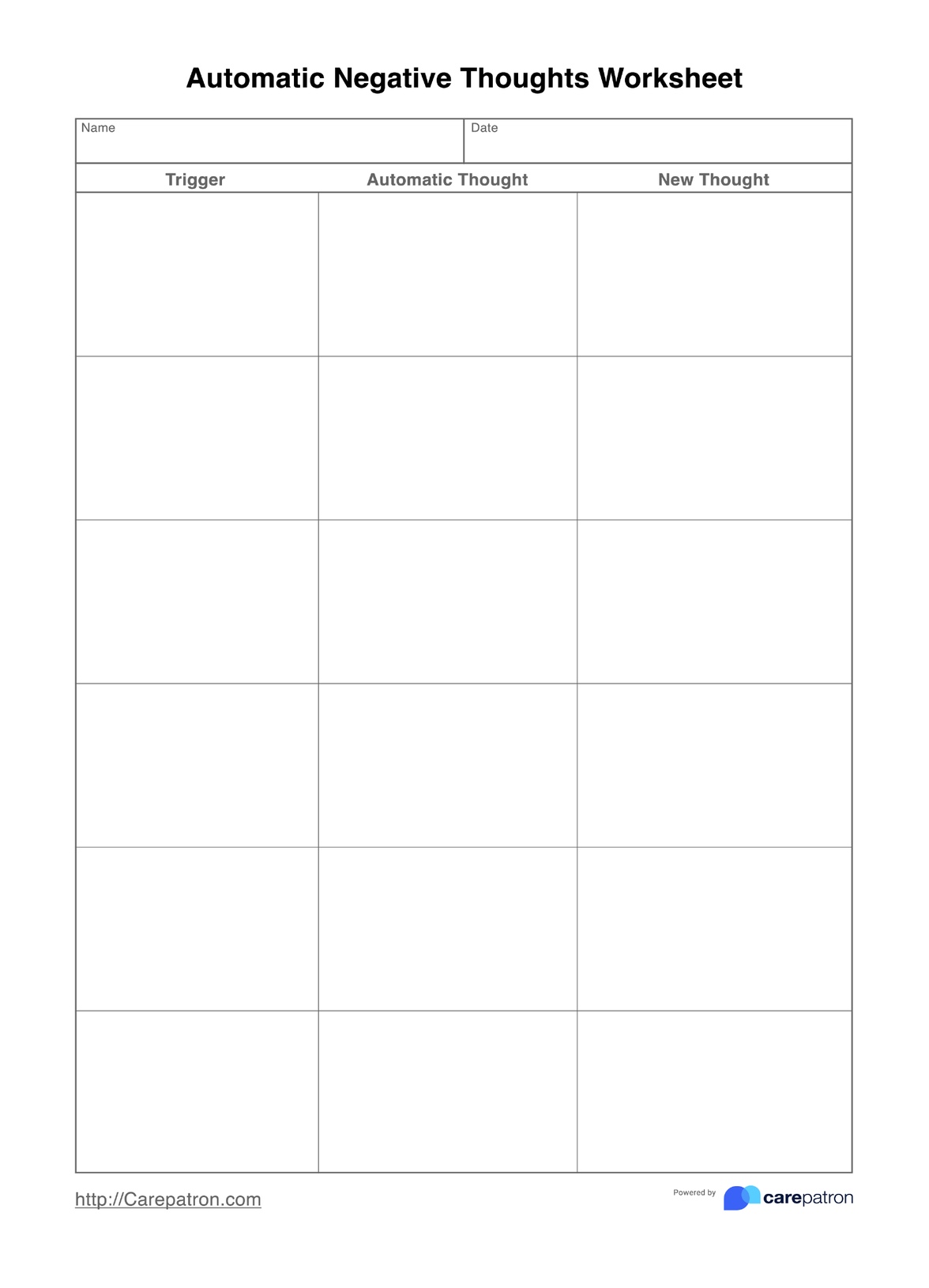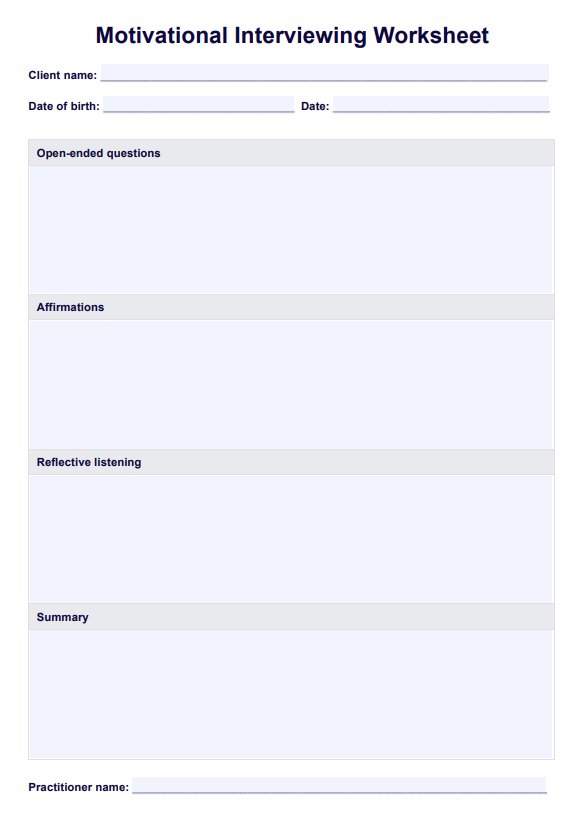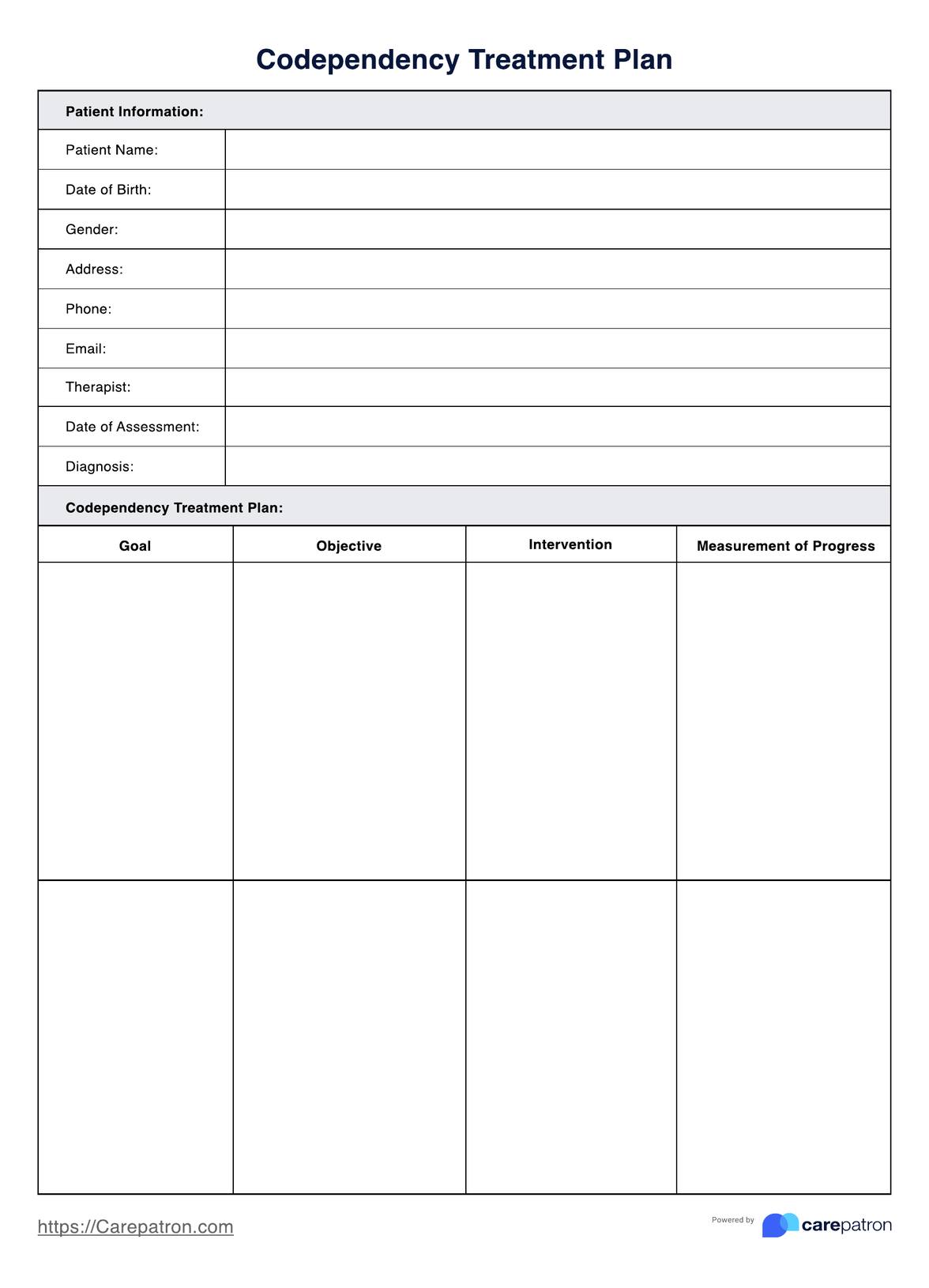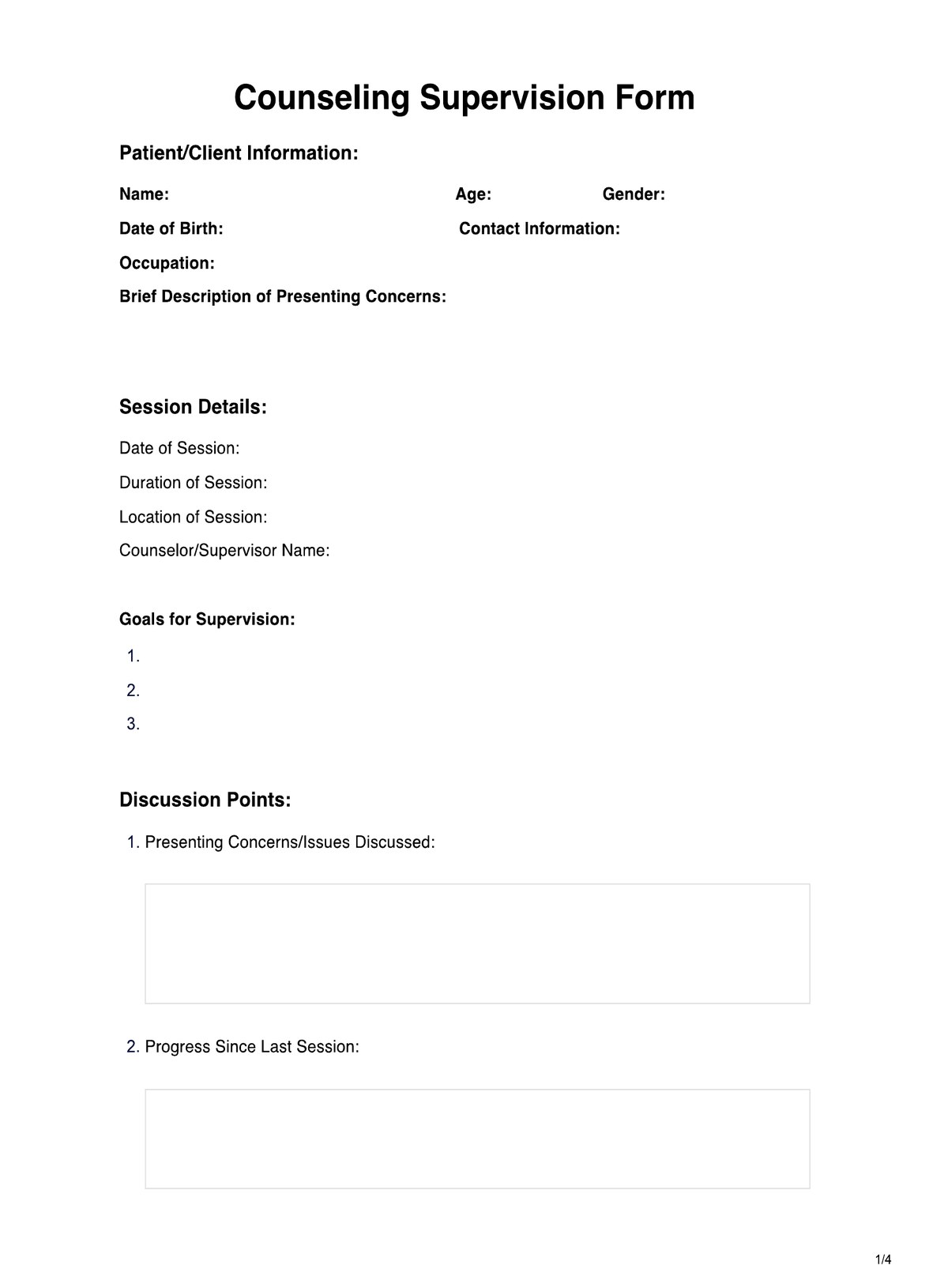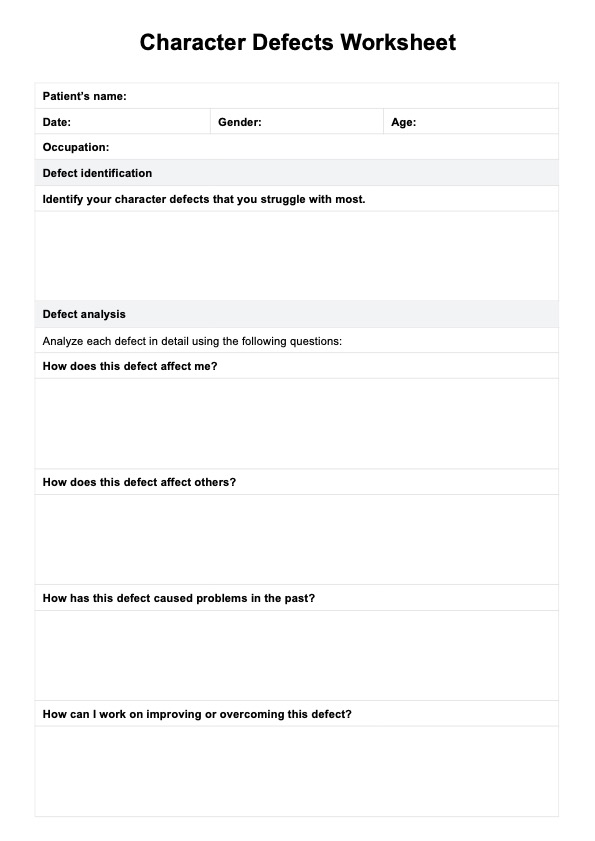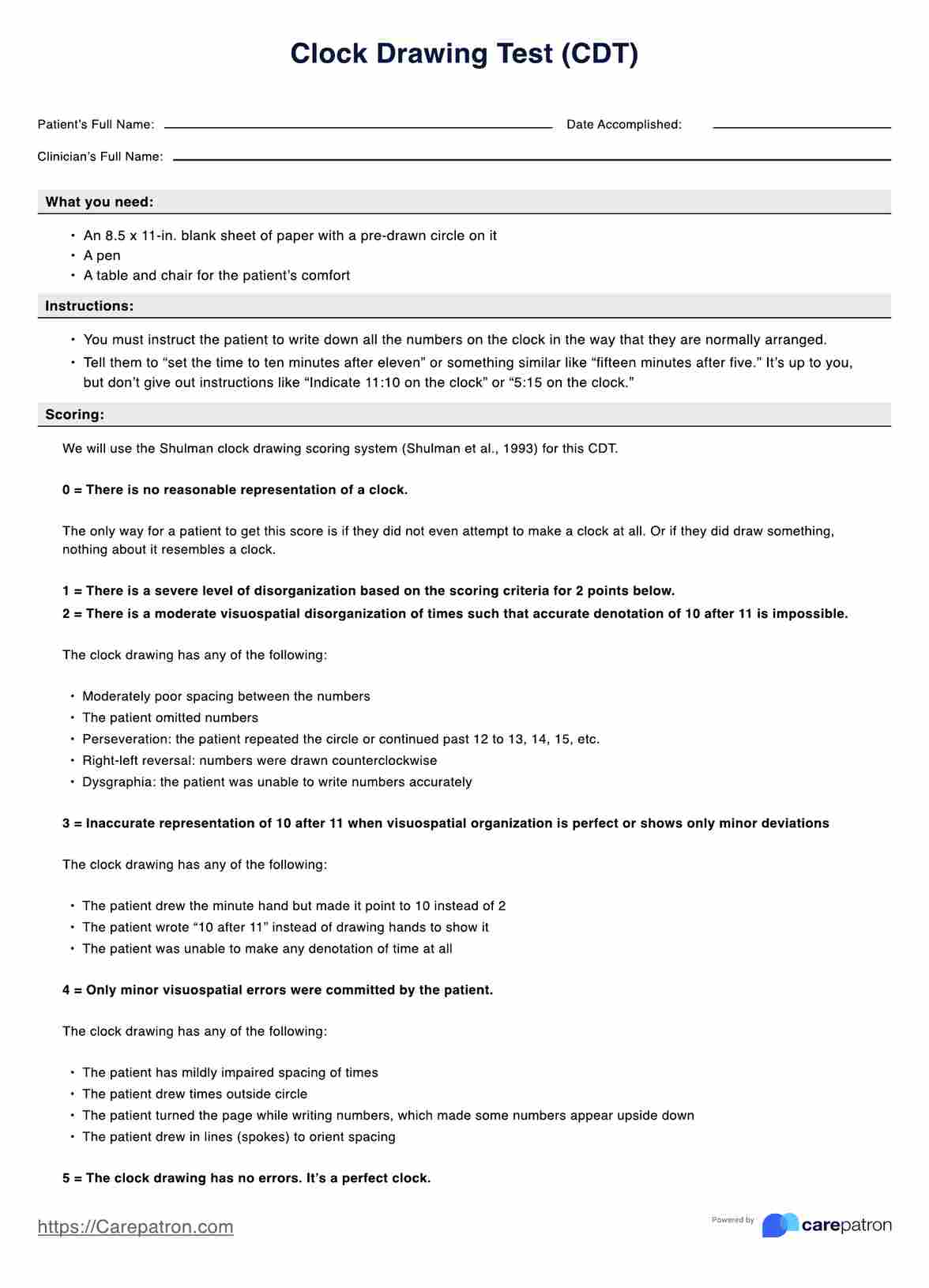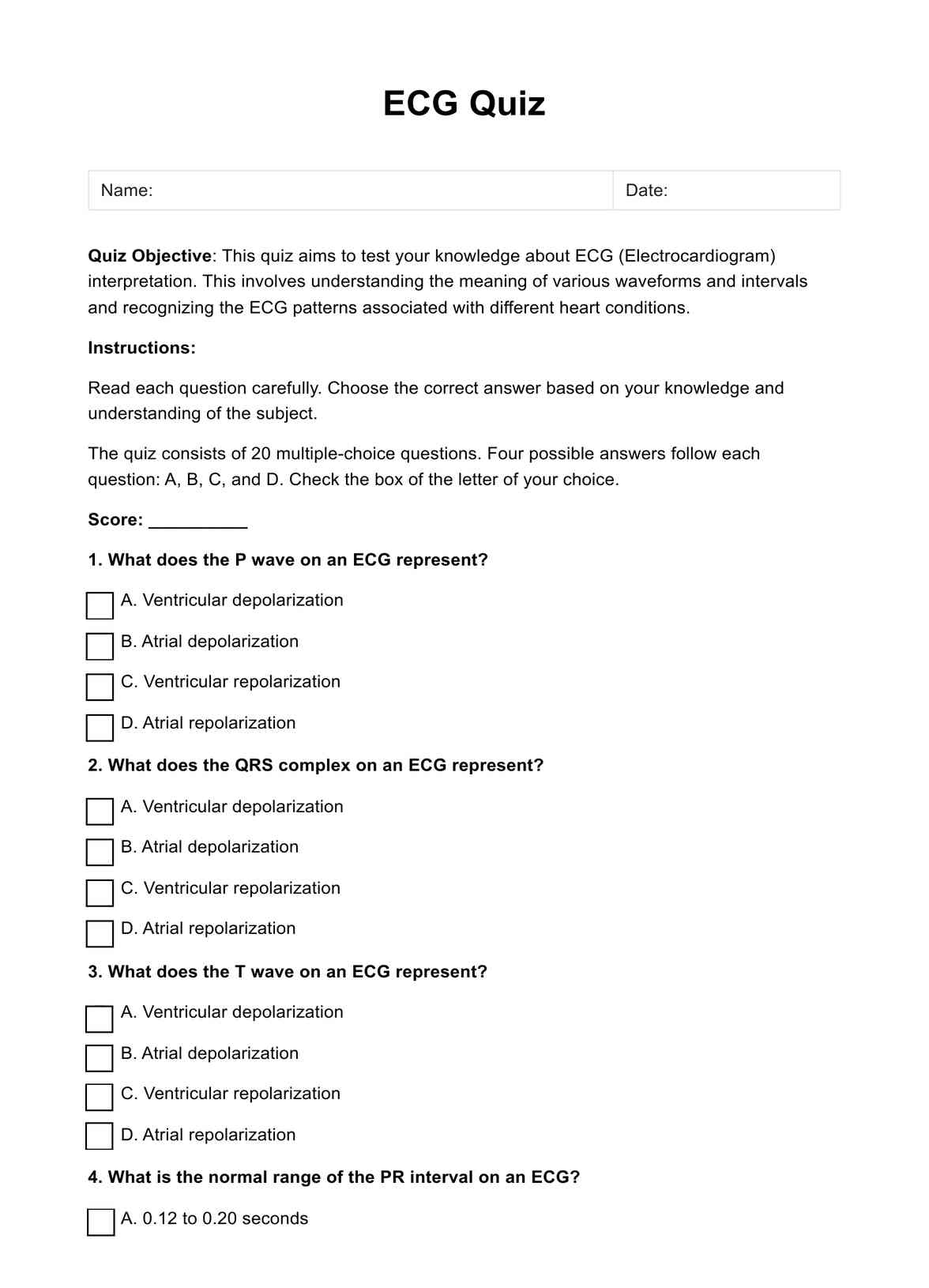Respect Worksheet
Unlock the power of respect with our comprehensive guide to respect worksheets. Enhance communication, empathy, and positive interactions effortlessly.


An introduction to respect
Respect, a fundamental aspect of human interaction, encompasses a profound acknowledgment and appreciation for every individual's inherent worth and dignity. It is the cornerstone of positive relationships, fostering empathy, understanding, and a sense of shared humanity.
Respect involves recognizing the uniqueness of each person, valuing their perspectives, and honoring their autonomy. It goes beyond mere politeness or adherence to social norms; instead, it involves a genuine recognition of every individual's intrinsic value to the collective tapestry of society. This recognition is grounded in the understanding that each person has a set of experiences, beliefs, and aspirations that shape their identity.
Respect is evident in the way we communicate and interact with others. It manifests in active listening, where one takes the time to truly understand another's thoughts and feelings, even when perspectives may differ. In conversations, respect calls for constructive dialogue, allowing for the free expression of ideas while focusing on shared values and common ground.
In relationships, respect forms the basis for trust and collaboration. It involves acknowledging boundaries, seeking consent, and considering the impact of our actions on others. In professional settings, respect is reflected in fair treatment, equal opportunities, and a commitment to diversity and inclusion.
Respect is not confined to individual interactions; it extends to a broader societal context. It involves recognizing and challenging prejudices and stereotypes, advocating for social justice, and working towards creating environments that uplift and empower all members of the community.
Respect acknowledges the interconnectedness of humanity. It prompts us to consider the consequences of our actions on a global scale, fostering a sense of responsibility for the well-being of others and the planet. Environmental stewardship, ethical consumption, and efforts toward social equality all stem from a foundation of respect for the interconnected web of life.
Respect Worksheet Template
Respect Worksheet Example
Why is respect important?
Respect is of paramount importance in various aspects of human interactions, relationships, and societal structures due to several compelling reasons:
Dignity and equality
Respect upholds the intrinsic worth and dignity of every individual. It reinforces the idea that everyone, regardless of background, deserves to be treated equally.
Positive relationships
Respect is a cornerstone of healthy relationships. It fosters trust, communication, and empathy, creating a positive and supportive environment for individuals to thrive emotionally and socially.
Conflict resolution
In situations of disagreement or conflict, respect is a crucial tool for resolution. It enables individuals to approach conflicts with an open mind, listen to opposing viewpoints, and find common ground without resorting to hostility.
Cultural understanding
Respect is essential for promoting cultural understanding and diversity. It encourages individuals to appreciate and learn from different cultures, fostering a more inclusive and harmonious society.
Promotes cooperation and collaboration
Respect is vital for effective cooperation and collaboration in professional and social settings. It encourages teamwork, constructive communication, and exchanging ideas, leading to better outcomes and shared success.
Personal and professional development
Individuals treated with respect are more likely to experience personal and professional growth. Respectful environments empower individuals to contribute their skills and talents, fostering a sense of accomplishment and fulfillment.
Mental and emotional well-being
Being treated with respect contributes to an individual's mental and emotional well-being. It creates a sense of safety and security, reducing stress and promoting positive mental health.
Social harmony
Respect plays a pivotal role in maintaining social harmony. It minimizes conflicts, discrimination, and prejudice, contributing to a more cohesive and tolerant society.
Role in education
Respect is crucial in educational settings. It creates a conducive learning environment where teachers, students, and staff can collaborate effectively, fostering a positive and enriching student and educational experience.
Global citizenship
In a globalized world, respect is essential for promoting peace and understanding among diverse nations and cultures. It forms the basis for diplomacy, cooperation, and resolving international conflicts.
Ethical behavior
Respect is intertwined with ethical behavior. It guides individuals to make morally sound choices, consider the consequences of their actions, act, and adhere to principles of fairness and justice.
Can respect be taught?
Respect can be taught, and it is an essential aspect of social and character development. Teaching respect involves instilling an understanding of the value and dignity of oneself and others and promoting empathy, kindness, and consideration. Here are some ways in which respect can be taught:
- Modeling behavior: Children often learn by observing the behavior of adults and peers. Demonstrating respectful behavior in daily interactions is a powerful example and reinforces the importance of treating others with kindness and consideration.
- Effective communication: Teach effective communication skills, including active listening, expressing oneself clearly, and seeking to understand others' perspectives. Emphasize the importance of respectful language and tone in conversations.
- Promoting empathy: Encourage children to understand and empathize with the feelings and experiences of others. This involves considering different perspectives and recognizing the emotions of those around them.
- Establishing clear expectations: Set clear expectations for respectful behavior in various settings, such as at home, in school, and the community. Consistency in expectations helps children understand the importance of respect across different contexts.
- Conflict resolution skills: Teach conflict resolution skills emphasizing constructive ways to address disagreements without resorting to disrespectful behavior. Emphasize compromise, active listening, and finding common ground.
- Cultural sensitivity: Foster an appreciation for diversity and different cultural backgrounds. Teach children to respect and celebrate the uniqueness of individuals from various cultures, races, and ethnicities.
- Positive reinforcement: Provide positive reinforcement when children exhibit respectful behavior. Recognition and praise for acts of kindness and consideration reinforce the importance of respectful conduct.
- Role-playing exercises: Engage in role-playing exercises where children can practice respectful communication and problem-solving in various scenarios. This hands-on approach helps reinforce positive behaviors.
- Discussion of values: Engage in discussions about core values such as respect, responsibility, and fairness. Encourage children to reflect on the importance of these values in their interactions with others.
- Teaching boundaries: Help children understand the concept of personal boundaries and respecting the boundaries of others. This includes physical, emotional, and personal space boundaries.
While respect is often taught during childhood, it is a lifelong learning process that continues into adulthood. Adults, educators, and role models play a crucial role in fostering a culture of respect by being examples and consistently reinforcing and modeling respectful behavior. By incorporating these strategies, individuals can develop a strong foundation for understanding and practicing respect in various aspects of their lives.
The benefits of social-emotional learning
Social-emotional learning (SEL) is an educational approach that focuses on developing individuals' key social and emotional skills. The benefits of SEL extend to various aspects of life, contributing to both personal and academic success. Here are some key advantages of incorporating social-emotional learning:
Improved emotional intelligence
SEL helps individuals develop a deeper understanding of their own emotions and the emotions of others. This heightened emotional intelligence fosters empathy, self-awareness, and effective interpersonal relationships.
Enhanced interpersonal skills
SEL equips individuals with the skills to navigate social interactions more effectively. This includes communication, active listening, conflict resolution, and cooperation—essential components for building positive relationships.
Better decision-making
Individuals with strong social-emotional skills are better equipped to make thoughtful and responsible decisions. SEL teaches problem-solving and critical-thinking skills, encouraging individuals to consider the consequences of their actions.
Reduced behavioral issues
Implementation of SEL has been associated with a decrease in behavioral problems, including aggression, bullying, and disciplinary incidents. It creates a positive and supportive environment that minimizes negative behaviors.
Increased empathy and compassion
SEL fosters empathy by encouraging individuals to understand and share the feelings of others. This heightened sense of compassion contributes to a more caring and inclusive community.
Academic success
Research suggests a positive correlation between social-emotional learning and academic achievement. SEL skills, such as perseverance, goal-setting, and effective communication, are transferable and beneficial in classroom and academic settings.
Stress management and resilience
SEL equips individuals with coping mechanisms and stress management skills. It promotes resilience, helping individuals recover from challenges and setbacks healthily and adaptively.
Positive school climate
Schools prioritizing social-emotional learning often experience a more positive and inclusive school climate. This contributes to students' and educators' sense of safety, belonging, and overall well-being.
Prevention of mental health issues
SEL programs can contribute to the prevention of mental health issues by promoting emotional well-being and providing tools for managing stress, anxiety, and other challenges.
Preparation for the workforce
Social-emotional skills are highly valued in the workforce. SEL helps individuals develop qualities such as teamwork, communication, adaptability, and leadership, which are crucial for success in professional settings.
Long-term success in life
The skills acquired through SEL are beneficial in academic and professional settings and contribute to long-term success in various life domains. Individuals with strong social-emotional skills are better equipped to navigate relationships, make informed decisions, and lead fulfilling lives.
Who can use this worksheet?
A diverse range of individuals and groups can utilize a respect worksheet in various settings to promote and reinforce respectful behavior and values. Here are some groups that can benefit from using a respect worksheet:
Educators and teachers
Teachers can use child respect worksheets in classrooms to facilitate discussions about the importance of respect, promote positive behavior, and teach students how to interact respectfully with peers and authority figures.
Parents and caregivers
Families can use respect worksheets at home to instill values of respect and kindness in children. These worksheets can be part of family discussions or activities that reinforce respectful behavior within the household.
Counselors and therapists
Mental health professionals can incorporate respect worksheets into counseling sessions to address interpersonal dynamics, communication skills, and conflict resolution. These worksheets may help clients develop and practice respectful behaviors.
Workplace training programs
Employers and human resources departments can use respect worksheets in workplace training programs to promote a respectful and inclusive organizational culture. These worksheets can address topics such as communication, teamwork, and diversity.
Community groups and organizations
Community organizations and groups can use respect worksheets in workshops or community events to promote positive interactions among members, fostering a sense of community and collaboration.
Rehabilitation and correctional facilities
Facilities focused on rehabilitation and correctional settings can use respect worksheets as part of programs to develop social skills, conflict resolution, and positive communication among individuals.
Training programs for volunteers
Organizations that work with volunteers can integrate respect worksheets into their training programs to ensure that volunteers understand the importance of respecting others while carrying out their responsibilities.
Themed events and workshops
Respect worksheets can be used in themed events, workshops, or seminars focusing on interpersonal relationships, teamwork, leadership, and diversity, creating opportunities for participants to reflect on and discuss respectful behavior.
School counselors and support staff
School counselors and support staff can use respect worksheets in one-on-one sessions during class or group activities to address respect-related issues, such as bullying prevention or conflict resolution. By facilitating and showing respect, students learn social awareness.
Churches and religious organizations
Religious groups can incorporate respect worksheets into their educational programs to emphasize values of compassion, understanding, and self-respect in the context of religious teachings.
Respect Worksheets facilitate discussions, reflections, and activities that promote understanding and practice of respectful behavior. They provide a structured tool for individuals and groups to explore the concept of respect and its application in various contexts, fostering a positive and inclusive environment.
Respect Worksheets facilitate discussions, reflections, and activities that promote understanding and practice of respectful behavior. They provide a structured tool for individuals and groups to explore the concept of respect and its application in various contexts, fostering a positive and inclusive environment.
Commonly asked questions
Respect Worksheets can be incorporated into educational settings to promote social and emotional learning among kids. Teachers can use them to engage students in respectful, empathetic, and positive communication discussions. The worksheets can also be part of character education programs, helping students develop essential interpersonal skills.
Respect Worksheets can be adapted for various age groups, from young children to adults. The content and format of the worksheets can be adjusted to suit the developmental levels and interests of the individuals using them. Whether in schools, families, workplaces, or community organizations, respect worksheets can be tailored to address diverse age groups' specific needs and contexts.


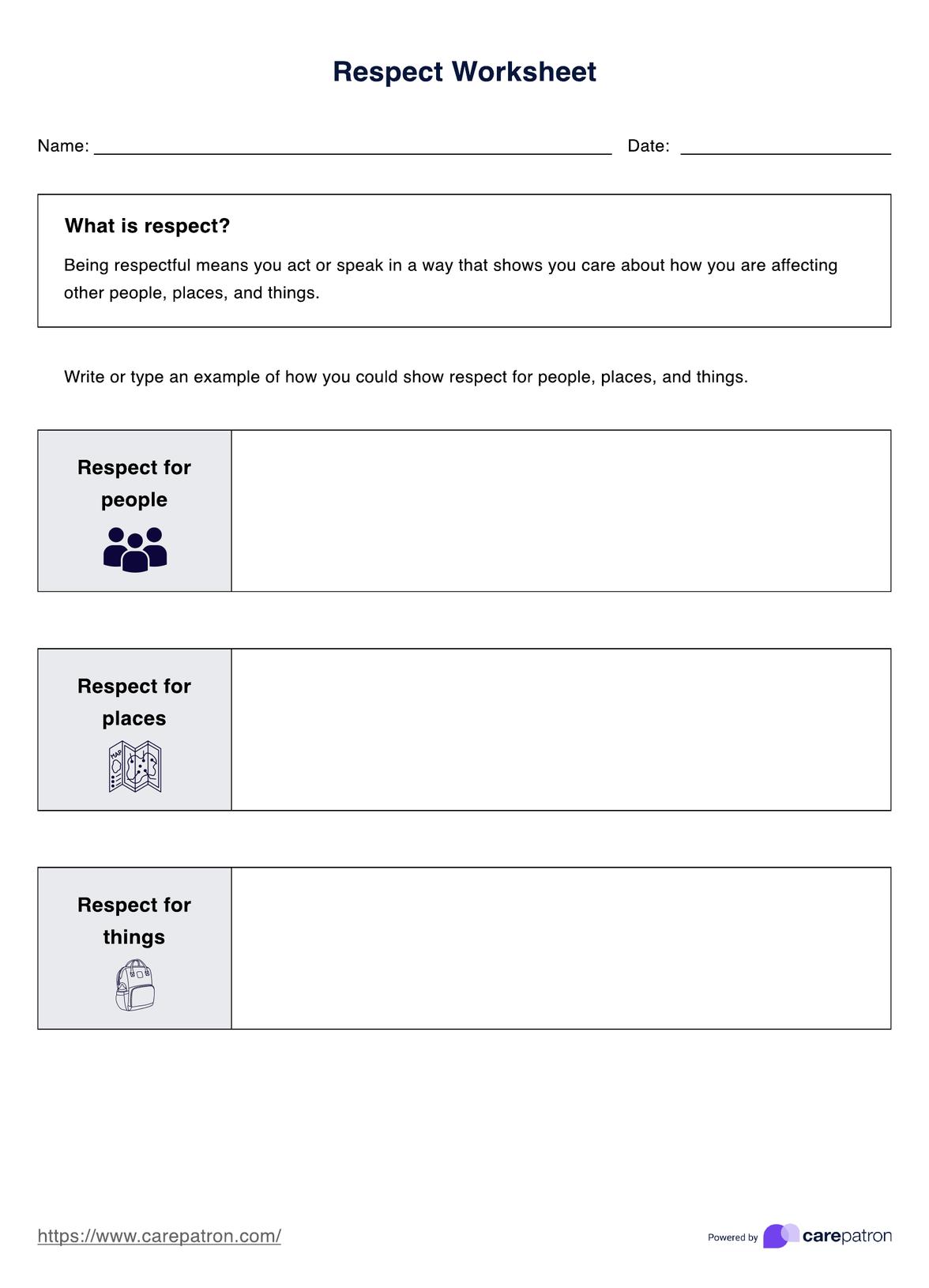
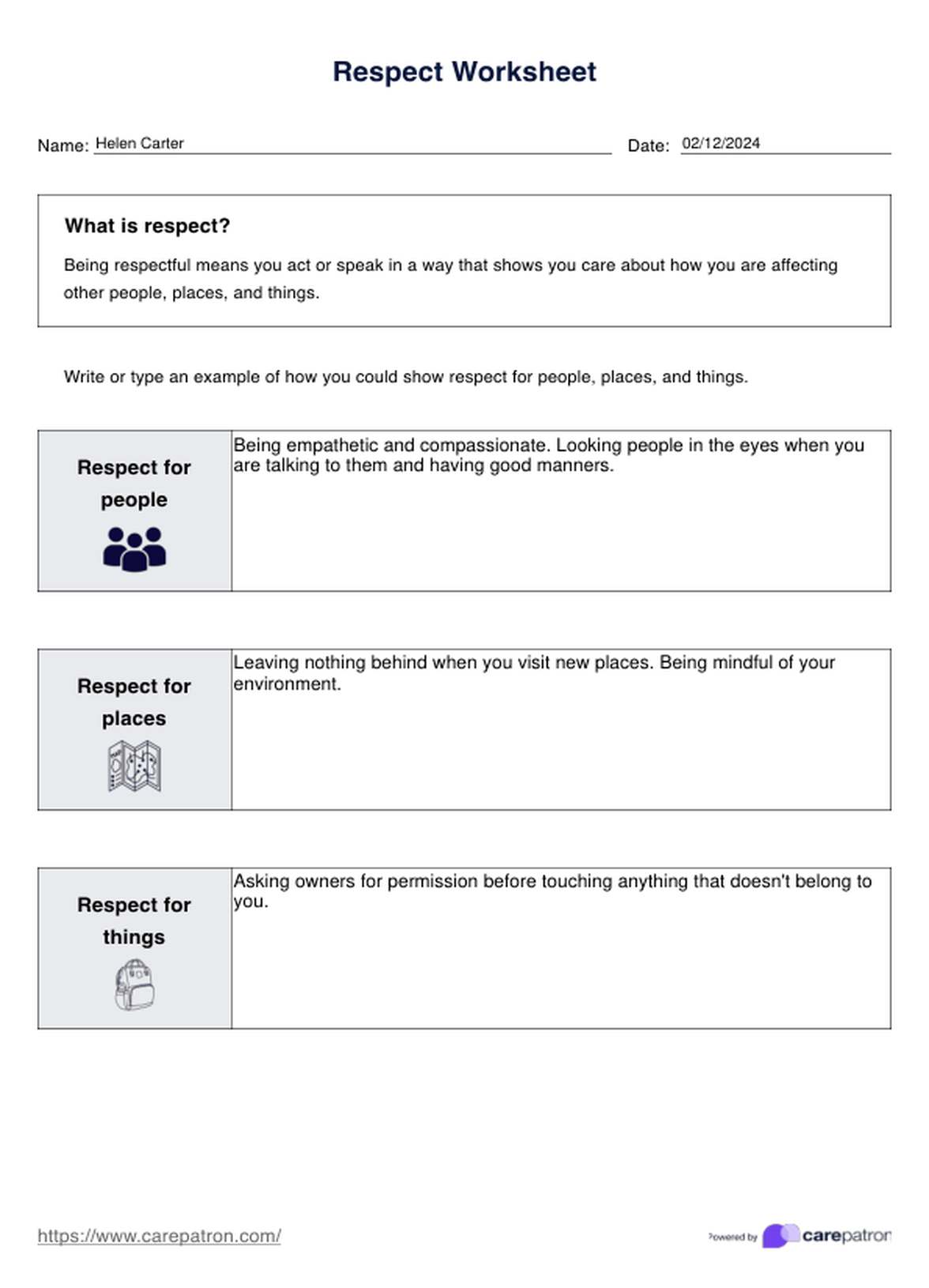

















-template.jpg)



















































































